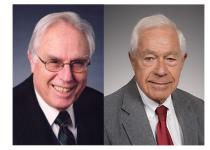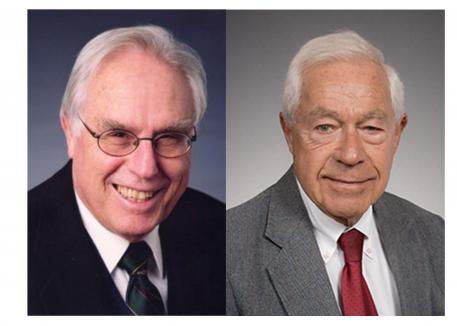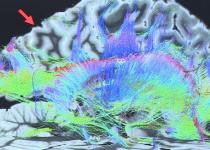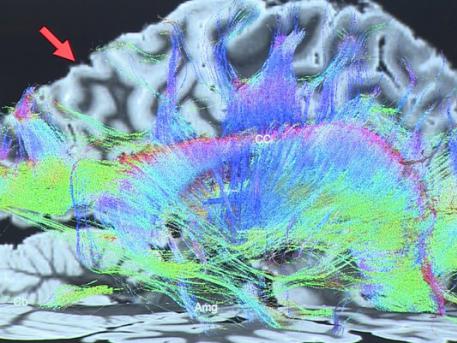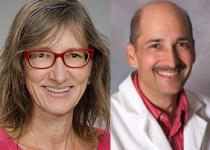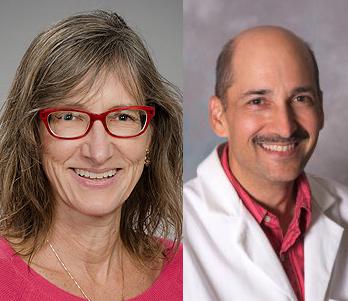Herpes Hypothesis Leads to Surprise Cancer-Related Finding
February 16, 2018 in Research
Dr. Jia Zhu's herpes research may have implications for new therapies in cancer applications.
Congresswoman DelBene Visit Turns Spotlight on Role of NIH, Medicare/Medicaid Funding
September 05, 2017
Congresswoman Suzan DelBene (WA-01) toured our Alzheimer's Disease Research Center, including the neuropathology core that is run by Dr. Keene. This article nicely highlights the service that the neuropathology core provides as part of our flagship Alzheimers Disease Research Center.
The George Martin-Dennis Reichenbach Endowment in Pathology
July 05, 2017 in Education, Research
Join us in honoring George Martin and Dennis Reichenbach’s deep and lasting commitment to research, education, and the development of new leaders for the discipline of pathology. No depiction of the strength of our department would be complete without noting the impact Dennis and George have had on generations of graduate students, post-doctoral students, and junior faculty. By supporting the George Martin-Dennis Reichenbach Endowment, you are not only honoring the amazing impact of two exceptional scientists, you are enabling early career pathologists to pursue their research interests that fall outside of the traditional focus areas of federal funding programs. In the spirit of the indelible impact Drs. Martin and Reichenbach continue to have on our field, this endowment’s purpose is to foster innovative research and better inform our fight against disease.
Stealing a Secret From an Unwelcome Virus
June 29, 2017 in Research
Dr. Jia Zhu's unexpected discovery in a herpes lab might bring relief to cancer patients.
Donated Brains a ‘Tremendous Gift’ to Science, UW Medicine Says
May 18, 2017 in Research
KING5 has published an article on brain donations and the benefits they provide to medical institutions. Dr. Keene was interviewed on the importance of brain donations in general and their potential to improve treatment and prevention of traumatic brain injuries.
More can be found on KING5's website, "Donated Brains a 'Tremendous Gift' to Science, UW Medicine Says".
Garcia and Kapur Voted as Top Doctors in Seattle Magazine
March 03, 2016 in Patient care
Dr. Rochelle Garcia and Dr. Raj Kapur were nominated to Seattle magazine's Top Doctors 2016 list. Only 4 pathologists in the Seattle metro area were selected.
Genital Herpes-Suppressing Immune Cells Identified
May 09, 2013 in Research
Discovery by Dr. Larry Corey, Dr. Jia Zhu and colleagues has implications for development of vaccine to prevent and treat HSV-2, similar infections.
